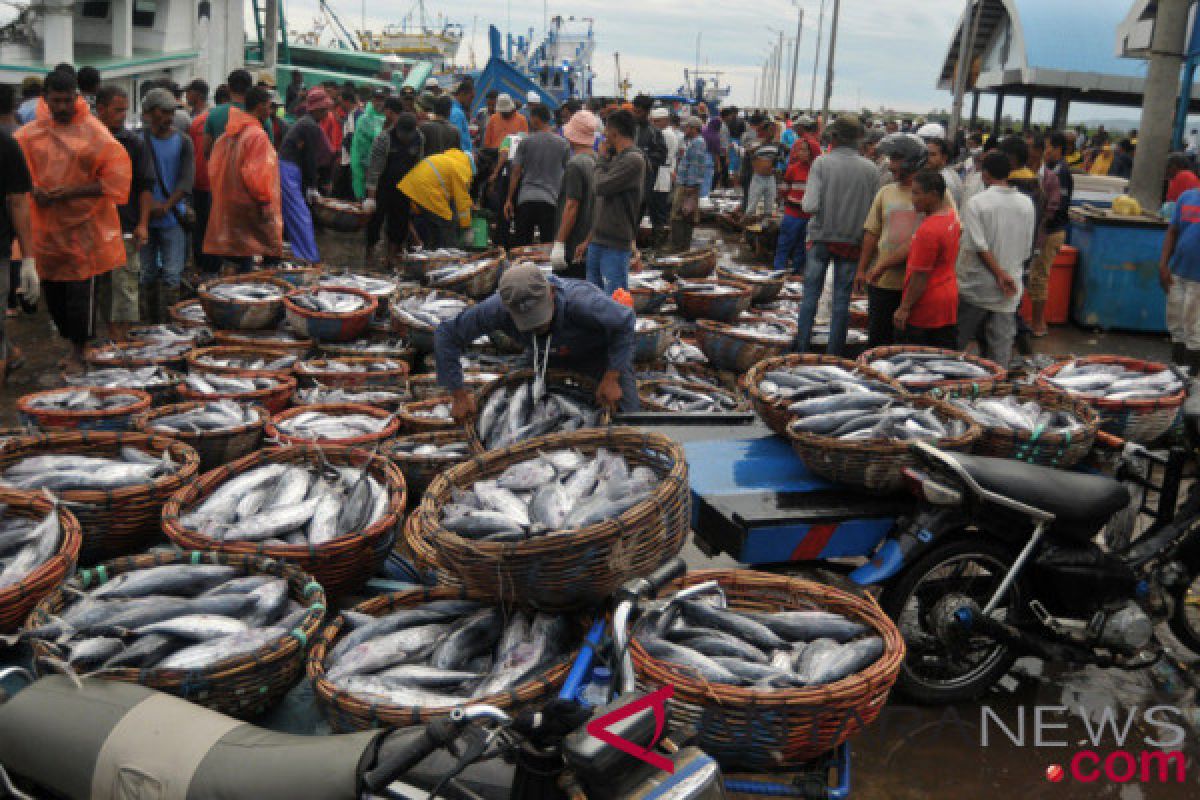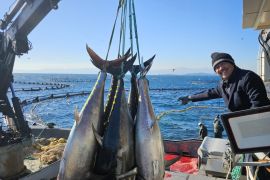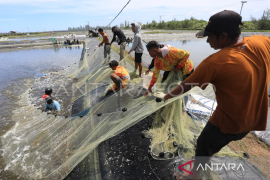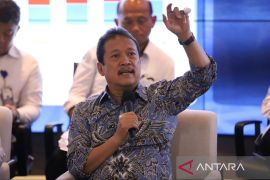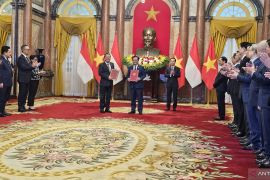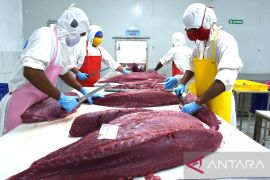"Business actors must be facilitated in terms of ease of business aspects. They must provide incentives if they can export fishery products produced from sustainable fisheries business practices," Halim told Antara in Jakarta on Wednesday.
There are two challenges faced by national fisheries entrepreneurs in various regions, one of which is the uncertainty of the domestic business climate.
In addition, the challenges faced by national entrepreneurs related to exports are the new requirements applied by the United States to fishery products from Indonesia.
Previously, Director General of Aquaculture of the Ministry of Maritime Affairs and Fisheries, Slamet Soebjakto, stated that regulations made by the Ministry of Maritime Affairs and Fisheries (KKP) did not hamper the export of the country`s fisheries commodities, including in the outermost areas such as Natuna.
"Throughout this year, based on our observation, export activities, especially in the Natuna Islands, have been stable. Exports that have recently been carried out in Natuna indicated normal export intensity," Soebjakto stated.
Moreover, according to Soebjakto, Natuan, which is located in Riau Islands, is a national grouper cultivation center and is geographically close to market access in Hong Kong or the People`s Republic of China.
He revealed that for other regions such as in Eastern Indonesia, there was indeed a decrease in export intensity. This is because it is far from the loading port.
Soebjakto remarked that the government must also be consistent to comply with the provisions of Law No. 17 of 2007 concerning shipping, wherein there is a provision that foreign-flagged vessels may not enter Indonesian territorial waters.
According to Soebjakto , the solution for this is to have an Indonesian feeder ship from the on-farm area to the loading port.
"When it comes to the issue of the number of live fish transporter ships resulting from actual cultivation that operate, it is actually quite a lot. Before the Ministerial Regulation was enacted, there were only 20 ships; after that it rose to 28. But speaking of frequency, we are bound by the Shipping Law, which indeed prohibits fishing vessels belonging to foreigners to operate freely in Indonesian waters, let alone calling at inter-island ports," Soebjakto revealed.
The KKP, he continued, has provided program support to start diversifying non-grouper cultivation commodities that have wider market access, such as white snapper and starfish, in some areas.
Reporting by Muhammad Razi Rahman
Editing by Andi Abdussalam, Suharto
Reporter: Antara
Editor: Fardah Assegaf
Copyright © ANTARA 2018
